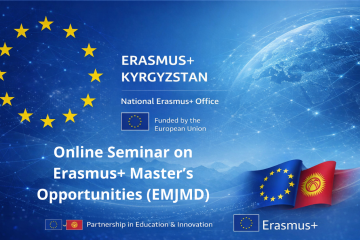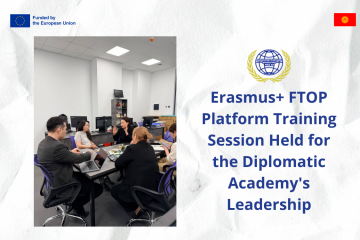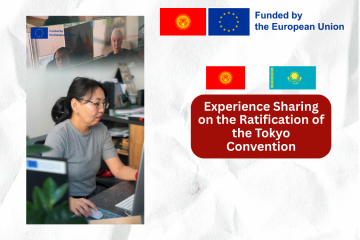The final event of February from the National Erasmus+ Office in Kyrgyzstan – Erasmus+ project writing training!
On February 20-21, 2024, our team held an intensive training under the guidance of an experienced trainer, Chynara Usenbekovna Adamkulova.
🎯 During two days, participants from the northern universities of Kyrgyzstan, studied the structure of the project proposal, applied the acquired knowledge in practical tasks, and deepened their knowledge of working with the working packages of the Erasmus+ program. They also acquired the skills necessary for writing quality project proposals.
Goals of the Training:Prepare participants for effective Erasmus+ project proposal writing. Participants will learn to formulate project goals and tasks, as well as develop its structure and budget.
Develop project management and teamwork skills. The training will help participants master the basic principles of Erasmus+ project management, including planning, resource allocation, and monitoring.
Deepen understanding of key aspects of the Erasmus+ program. Participants will study the specifics of various work packages such as “Quality Assurance,” “Exploitation,” and “Communication and Dissemination.”
Tasks of the Training:Learn the structure of the Erasmus+ project application and its key components. Participants will learn to create a clear and persuasive project plan, as well as analyze needs and define objectives.
Practical application of knowledge in group work. Participants will work in groups to develop individual sections of the project application, fostering teamwork and idea exchange.
Mastering skills in project budgeting. Understanding the basics of financial planning and project budget management.
Expected Outcomes: Enhance participants’ competencies in Erasmus+ project writing. Participants will gain the knowledge and skills necessary to independently create high-quality project proposals.
Develop abilities in project management. Participants will learn to manage projects effectively, including planning, implementation, and process control.
Create a professional network. Through group work, participants will be able to establish connections with other professionals, potentially facilitating future collaboration.
This training was attended by 28 people (8 men and 20 women) from 14 universities of the Kyrgyz Republic.


